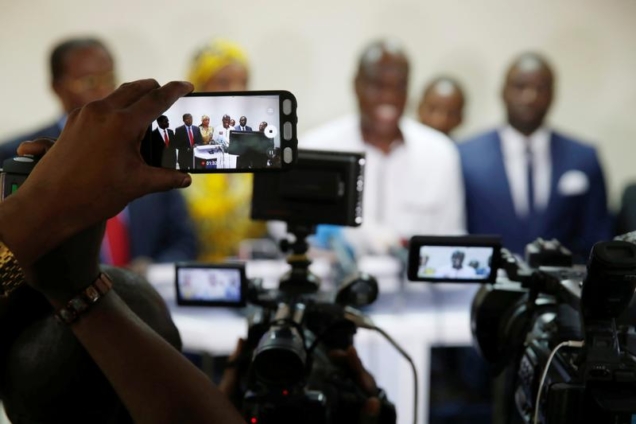The issue of implementing a licensing regime for journalists in Ghana has been a long-standing debate that merits renewed attention. The absence of a consensus on this matter and its subsequent non-implementation could be detrimental to the country.
Like developed nations such as the United Kingdom and the United States, Ghana does not have a specific licensing system for journalists. In these countries, press freedom is considered a fundamental right, allowing journalists to operate without the need for a license.
This absence is often viewed as a safeguard, promoting independent reporting free from direct government control or censorship, fostering investigative journalism and the open exchange of information.
The Potential Benefits of a Licensing System
While the absence of a licensing regime is perceived positively, the adoption of one in Ghana could yield several benefits. First and foremost, it could elevate professional standards by establishing specific criteria for obtaining a license, including education, experience and ethical guidelines. This, in turn, would empower journalists to carry out their responsibilities more responsibly.
Furthermore, a licensing system could instill media accountability by holding journalists responsible for their work. Violations of ethical standards or unprofessional behaviour could result in consequences, such as license revocation, serving as a deterrent against unethical practices.
Moreover, a licensing system might contribute to quality control within the media industry, enhancing the credibility of media organizations. By ensuring that journalists meet certain educational and professional criteria, there is a potential for an overall improvement in the quality of journalism.
Safeguarding Public Interest and Journalists’ Rights
Besides, the implementation of a licensing regime could protect public interest by preventing the dissemination of false information or malicious content. Journalists with licenses may be more likely to provide accurate and reliable news, contributing to an informed citizenry.
Again, a licensing system would solidify the legal recognition and rights of journalists, providing them with certain privileges such as access to official events, protection of sources, and legal support in case of conflicts arising from their journalistic activities.
A Closer Look at Concerns
However, it is crucial to acknowledge the potential concerns associated with licensing regimes. One significant worry is the possibility of the system being exploited to restrict freedom of the press. Governments or regulatory bodies may misuse licensing to control or censor journalists, particularly those critical of the authorities.
There is also a risk of subjectivity and bias in the licensing process, with decisions influenced by political or personal agendas, potentially leading to discrimination against certain individuals or media outlets.
Moreover, the fear of losing a license might induce self-censorship among journalists, hindering their ability to cover controversial topics or engage in critical reporting. This could have a chilling effect on investigative journalism and freedom of expression.
Striking a Balance
In conclusion, while a licensing regime for journalists aims to raise professional standards and accountability, its effectiveness depends on implementation and the broader political context. Striking a delicate balance between promoting responsible journalism and safeguarding press freedom is paramount.
Countries such as Ghana contemplating or implementing such regimes must carefully weigh the potential benefits against the risks and work to ensure transparency and fairness in the licensing process.
Latest Stories
-
Ogyeahohuo Yaw Gyebi II retained as President of National House of Chiefs
10 mins -
Embrace ICT to fit in digital world – Ho NYA boss to youth
54 mins -
We don’t want armed soldiers at polling stations – Tanko-Computer
57 mins -
Drama as police corner armed robbers inside locked forex bureau at Lapaz
1 hour -
Nigerian-born conquers childhood hearing loss to become KNUST’s overall best graduating student
2 hours -
ECOWAS Court orders compensation for violations against New Force’s Shalimar Abbiusi
2 hours -
Dreams FC denies allegations of attempting to sign Najeeb Yakubu
3 hours -
Election 2024: ‘Right to free and fair elections non-negotiable’ – Akufo-Addo
3 hours -
Kurt Okraku took out my passport from the U23 squad that travelled to Japan – Najeeb Yakubu alleges
3 hours -
Where hope fails: Ghana’s decaying home for the destitute
3 hours -
NDC Mining Committee for 2024 campaign refutes allegations of recruiting thugs for elections
3 hours -
Traction Control: A lifesaver with an off switch? Here’s why it exists
3 hours -
I don’t need anyman to woo me with money – Miss Malaika 2024 winner refutes pimping claims
4 hours -
”Kurt Okraku sabotaged my national team career because I refused to sign with Dreams FC” – Najeeb Yakubu
4 hours -
Businesses urged to leverage Generative AI for enhanced customer engagement
4 hours

